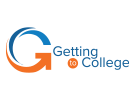What is, and where are the Inclusive postsecondary education (IPSE) opportunities located?
#
Inclusive postsecondary education (IPSE) refers to programs at colleges and technical schools that provide career and transitional training to people with intellectual or developmental disabilities to attend college with their peers. IPSEs can offer students with disabilities a variety of experiences and opportunities for growth as they move to the next chapter of their lives.
Students participating in inclusive higher education benefit from a richer learning experience through exposure to diverse perspectives, improved social skills, enhanced critical thinking, a stronger sense of belonging, increased cultural awareness, and better career preparedness, all while fostering a more equitable and inclusive society.
IPSE programs not only help build the student’s academic skills but can help them become life-long learners, develop vocational skills, and build a meaningful career that is more likely to lead to integrated and competitive employment.
Students with IDD who enroll in postsecondary education:
-
Are more than twice as likely to be employed!
-
Earned approximately 80% more per year compared to those not participating in postsecondary certificate or degree programs
-
Achieve higher levels of independent living
-
Have better physical health and healthier relationships
-
Rely less on Supplemental Security Income (SSI) and Vocational Rehabilitation supports
Think College Fast Facts: “The Effect of Postsecondary Education on Employment, Income, and SSI for People with Intellectual Disabilities” (https://thinkcollege.net/sites/default/files/files/resources/FF24_Effect_of_PSE_on_Employment-Sannicandro.pdf)
Where to find IPSE programs?
You can learn more about IPSE programs at Think College’s searchable map: https://thinkcollege.net/college-search
Think College is a national initiative dedicated to developing, expanding, and improving research and practice in inclusive higher education for students with intellectual disability. It is based at the Institute for Community Inclusion, University of Massachusetts Boston.
Quick Links:
-
Wisconsin (https://thinkcollege.net/college-search?f[0]=tc_state_province%3AWisconsin)
-
Iowa (https://thinkcollege.net/college-search?f[0]=tc_state_province%3AIowa)
-
Illinois (https://thinkcollege.net/college-search?f[0]=tc_state_province%3AIllinois)
-
Minnesota (https://thinkcollege.net/college-search?f[0]=tc_state_province%3AMinnesota)
 GTC will be providing more in-depth info on every program in and around WI soon. Fun Fact: Many inclusive higher education programs for students with disabilities offer transitional training programs (typically during the summer) to help these individuals prepare for enrollment during the fall semester. GTC offers similar summer courses but is not affiliated directly with any specific college, university, or technical school.
GTC will be providing more in-depth info on every program in and around WI soon. Fun Fact: Many inclusive higher education programs for students with disabilities offer transitional training programs (typically during the summer) to help these individuals prepare for enrollment during the fall semester. GTC offers similar summer courses but is not affiliated directly with any specific college, university, or technical school.
For More Information:
-
Benefits of postsecondary education experiences for adults with intellectual and developmental disability (https://www.sciencedirect.com/science/article/pii/S2211609524000046?via%3Dihub=#sec0075)
-
The Benefits of an Inclusive Education (https://www.princetonreview.com/college-advice/inclusive-education)
-
Think College Inclusive Higher Education Network (https://thinkcollege.net/projects/tcn)
